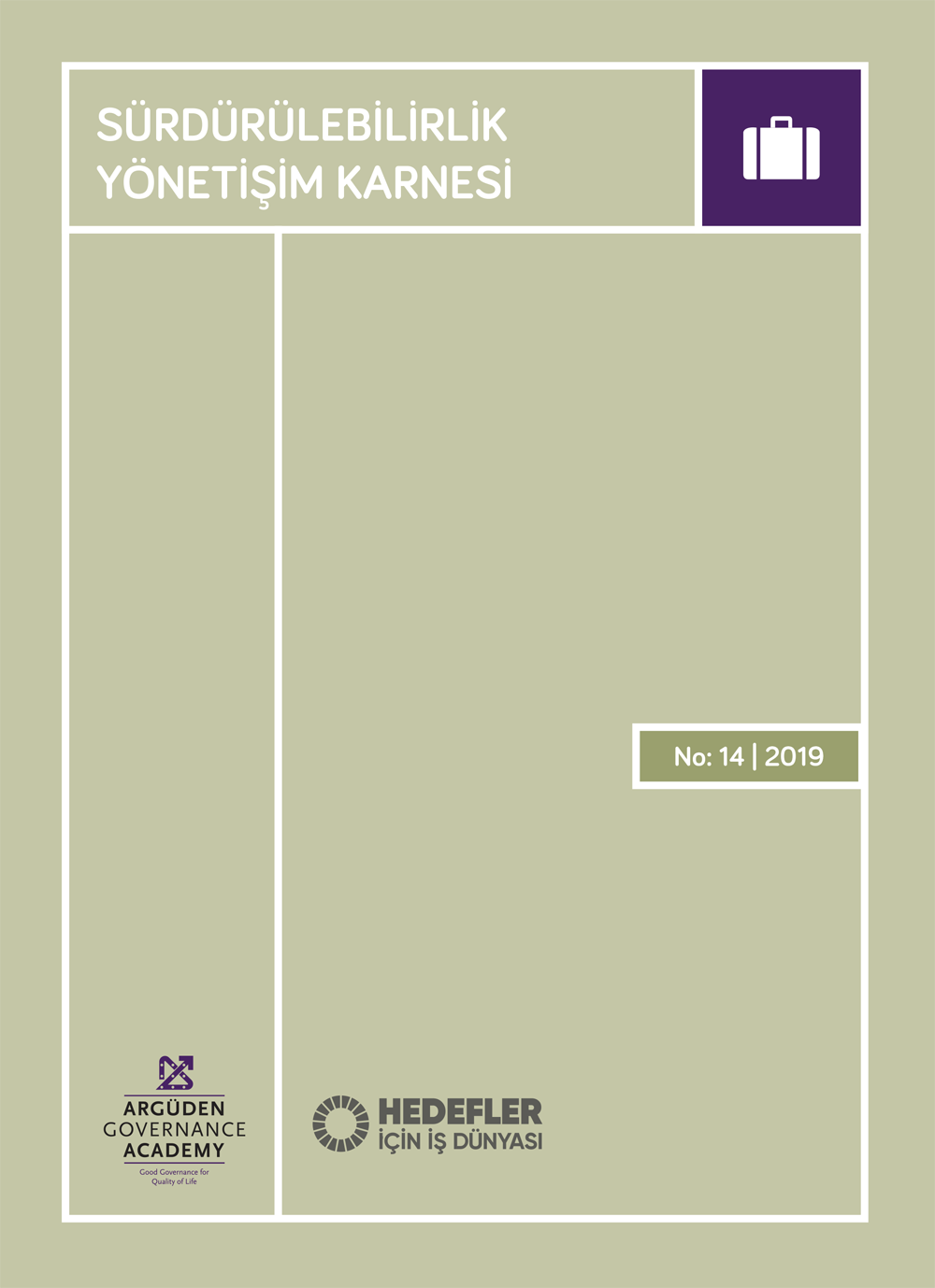Preface
Trust is the essence of good governance and foundation of sustainable development.
Awareness about the importance of changing behaviors for a sustainable future as well as commitment to action is definitely increasing. Sustainable Development Goals (SDGs) were approved by almost 200 countries as a common framework to focus on actions for a sustainable future, in 2015. Corporate sector has started to embrace the SDGs. However, progress has been slow.
Argüden Governance Academy aims to bring insight and information to the attention of decision makers to motivate action and improve effectiveness of implementation. Therefore, we decided to conduct an impact research, namely Sustainability Governance Scorecard©, to identify how the best companies conduct their sustainability efforts. The SG Scorecard not only identifies and provides information about the state of the Global Sustainability Leaders, but also highlights good examples from which the world could learn.
What gets measured, gets improved. We analyzed publicly available data through a ‘governance lens’, as good governance is the key to the sustainability of the sustainability efforts. This impact research is seeking to identify whether the Global Sustainability Leaders have the right processes, people, incentives, and culture to provide good governance (guidance and oversight) over their sustainability efforts; the coverage of their sustainability efforts are comprehensive in terms of stakeholders, value chain and geographies, and continuous improvement is embedded in their efforts through a learning loop.
The SG Scorecard has two key conclusions:
- There is significant room for improvement in the effectiveness of execution and accountability of the sustainability programs of even the leading companies, let alone the large number of enterprises all around the world.
- There is extensive peer-to-peer learning opportunities based on good practices shared by the Global Sustainability Leaders on how they approach their sustainability efforts.
Our research also indicates that companies embracing the UN Global Compact (UNGC) and the Integrated Reporting (<IR>) Framework seem to have better chances of incorporating sustainability into their culture by providing better governance of their sustainability efforts.
The SG Scorecard and our results could be utilized by many stakeholders including boards and managements of companies, investors, regulators, civil society organizations, academia, and the representatives of the press for peer learning, identifying good examples, improving accountability and investment decisions.
We are happy to collaborate with Business for Goals (B4G) Platform in Türkiye which is the first collective action of private sector to promote SDGs and establish partnerships. B4G is a platform-based approach to deepen responsible engagement with the private sector and working with Government, to mobilize private sector resources for domestic investments in the Sustainable Development Goals in accordance with national development priorities.
TÜSİAD, TÜRKONFED (Turkish Enterprise and Business Confederation) and UNDP work together under this initiative, to execute research, studies, and dialogues to enhance the private sector’s role for the achievement of SDGs.
To conclude, we would like to thank every member of the Academy’s research team for their dedicated and invaluable efforts, Anand Ramachandran from River Valley Asset Management for his review of an earlier draft and sharing his insights. Additionally, we would like to share special thanks to Özhan Binici for his invaluable contributions as the creative advisor of the SG Scorecard, and our designing partner, Sui Generis, for their valuable efforts to prepare this report to publication.
As our foundation is dedicated to help improve quality of governance in all types of institutions, we are happy to share all our data, approach, research methodology, and results as a public good to help improve the state of the world.
Dr. Yılmaz Argüden

